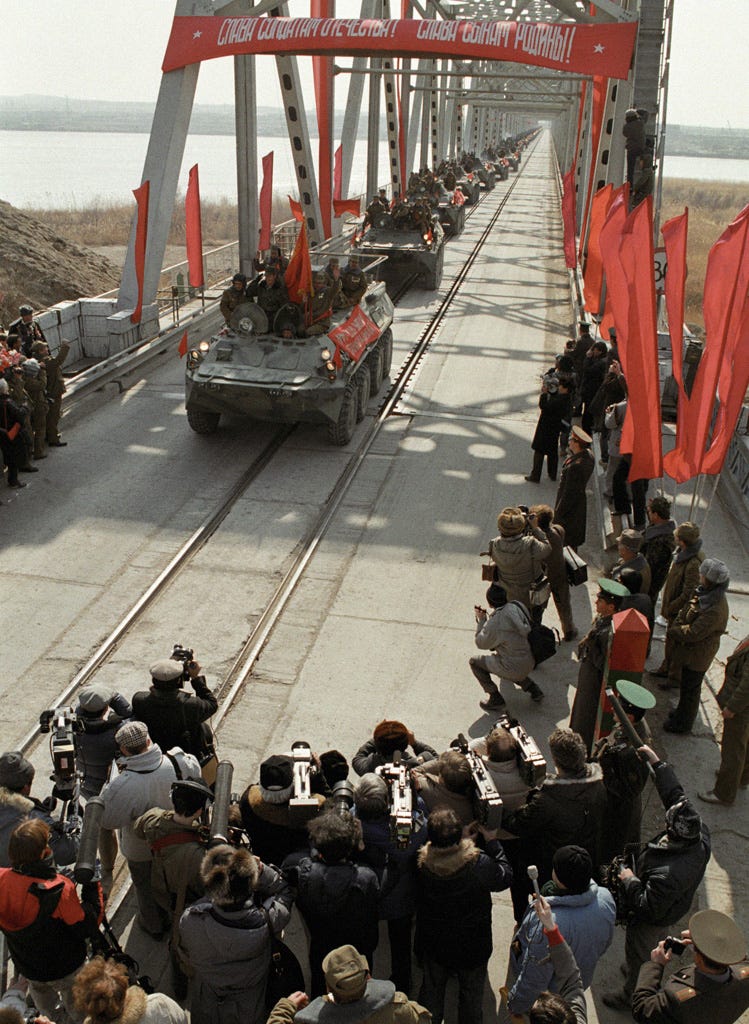The Kashmir Insurgency and deportations of the Kashmiri Pandits.
How the 1980s and 90s were a tumultuos time for Kashmiris, and how a community was completely uprooted from its home.
The 1980s in Kashmir and Pakistani Meddling:
The 1980s were a tumultuous period for the Kashmir Region. The passing of Sheikh Abdullah in 1982 was a turning point. Sheikh Abdullah was the founder of the Jammu Kashmir National Conference (JKNC), a regional political party that is quite influential in the politics of the region to this day. He was succeeded by his son Farooq Abdullah. However, Farooq fell out of favour with the central Government. Prime Minister Indira Gandhi had his government toppled with the help of Farooq’s Brother-in-Law, Ghulam Mohammad Shah. GM Shah was then removed in 1986 after the Anantnag riots, where Hindu (Kashmiri Pandit)-owned businesses, properties, and temples were targeted and attacked. Abdullah and Prime Minister Rajiv Gandhi (successor to Indira after her assassination) reached an agreement and entered an alliance for the 1987 elections, which were allegedly rigged in favour of Abdullah. This led to a rise of armed insurgencies, who received logistics, weaponry, and training from Pakistan.
The Soviet-Afghan War Connection, the kidnapping of Rubaiya Sayeed, the Killings of Kashmiri Pandits:

In February 1989, about 750 kilometres away - the last Soviet troops withdrew from Afghanistan. Pakistan, which had received large amounts of supplies from the US to support the Mujahideen, now had a glut of advanced weaponry that could now be diverted to Kashmir. This fueled the insurgency and set the Kashmir Valley on fire. By then, targeted killings of Kashmiri Pandits had started. Victims included political leaders, retired Judges, lawyers, and many others. Hit lists of Pandits were in circulation. Waves of panic hit the community, especially after a local newspaper published an anonymous message, allegedly from the Hizb-ul Mujahideen. Home Minister Mufti Mohammad Sayeed’s Daughter, Rubaiya Sayeed was kidnapped by the Jammu Kashmir Liberation Front (JKLF), Her kidnappers demanded the release of 5 JKLF members in exchange for her safety. The JKLF was also allegedly involved in the killings of a lot of political collaborators accused of being Indian stooges.
The incidents of January 1990, the Deportations of Kashmiri Pandits, and Political Violence in Kashmir:
In January, Farooq Abdullah resigned and Jagmohan Malhotra was appointed Governor. Several accounts speak of slogans being blared from Mosques threatening the Pandits, including the call, Raliv, Tsaliv, ya Galiv (Convert, Flee, or Die). According to estimates by the Kashmiri Pandit Sangharsh Samiti (KPSS), of 75,343 Kashmiri Pandit families in January 1990, more than 70,000 fled between 1990 and 1992. Several massacres took place in the 1990s and 2000s, both by Government Forces (primarily targeting Kashmiri Muslims who were suspected of being terror sympathizers) and by Pakistan-backed terrorists (who targeted Kashmiri Hindus and those Kashmiri Muslims who were suspected of being informants of the Indian State). Pakistan played a major hand in funding, training, and housing terrorists. The insurgency led to the flight of most of the Kashmiri Pandit Community and the legal occupation and repossession of their lands and properties under the Migrant Immovable Property Act. Under this act, people registered as Migrants were he insurgency was brought largely under control by the 2000s. Since then, peace has largely returned to the Valley. There have been occasional terrorist attacks, mostly directed at the Indian Military
The vast majority of the Kashmiri Pandits have still not felt safe enough to return. A Truth and Reconciliation is vital for the Kashmiri Community to come together, end religious-political violence, and restore true normalcy in Kahmir. It is important to recognize that both, the Hindus and Muslims of Kashmir have suffered. Denialism will not help anyone.



